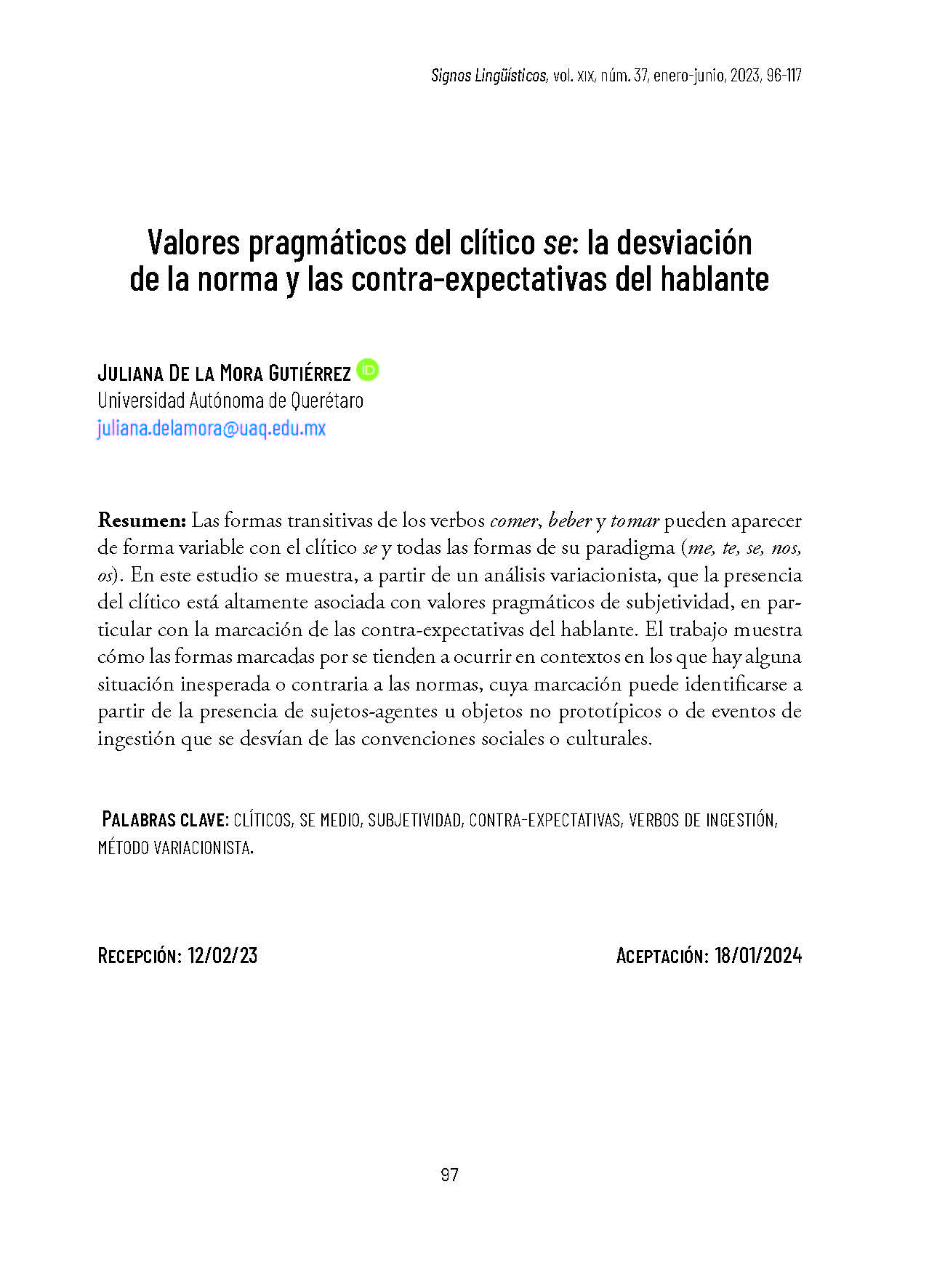Valores pragmáticos del clítico se: la desviación de la norma y las contra-expectativas del hablante
Abstract
The transitive forms of the Spanish verbs eat (comer) and drink (tomar and beber), variably occur with the clitic se and all forms of its paradigm (me, te, se, nos, os). This study shows, based on a variationist analysis, that the presence of clitic is highly associated with pragmatic values of subjectivity, in particular with the marking of the speaker's counter-expectations. The work shows how the The work shows how the marked forms tend to occur in contexts tend to occur in contexts in which there is some unexpected situation or contrary to the norms, whose marking can be identified from the presence of non-prototypical subject-agents, objetcs, or from ingestion events that deviate or from ingestion events that deviate from social or cultural conventions.Downloads
Download data is not yet available.

Published
2024-04-16
How to Cite
De la Mora Gutiérrez, J. (2024). Valores pragmáticos del clítico se: la desviación de la norma y las contra-expectativas del hablante. Signos Lingüísticos, 19(37), 96-117. https://doi.org/10.24275/sling.v19n37.04
Section
Artículos


